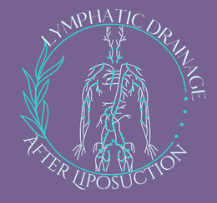How Diet Affects Lymphatic Drainage After Liposuction
Liposuction is an effective cosmetic procedure, but proper recovery is essential to achieve the best possible results. The lymphatic system plays a critical role in healing by removing toxins, reducing swelling, and preventing complications. One of the most important factors influencing lymphatic drainage after liposuction is diet.
What you eat directly impacts inflammation, fluid retention, and the body’s ability to detoxify post-surgery. Consuming nutrient-dense foods can accelerate healing, while poor dietary choices can slow progress and lead to complications.
Are You In Need Of Service? Contact Sharon Thomas (720) 719-6233
I am committed to delivering customized treatment strategies crafted specifically for your requirements following liposuction surgery. Covering everything from how treatments restore functionality of the muscles that ultimately move lymphatic fluid, to bringing your nervous system more immediately from fight or flight after surgery trauma to the healing parasympathetic mode, which promotes more rapid recovery. I provide an extensive array of expert approaches and skill sets that I have perfected over the past decades. They restore your health, increase your flexibility, provide healing and flow to your lymphatic system and establish a higher quality of life and wellbeing. This results in smooth, comfortable and distinctly accelerated recovery from your liposuction surgery. My approach is scientific and measurable, leading to quicker recovery with reduction in measurement of the surgical area(s) and visible reshaping, increasingly, after each of your four sessions. To learn more, Visit
The Importance of the Lymphatic System in Recovery
The lymphatic system is responsible for removing waste, excess fluids, and toxins from the body. It works alongside the circulatory system to transport nutrients and white blood cells, making it a critical component of recovery after liposuction.
Because liposuction disrupts this system, patients often experience swelling, bruising, and fibrosis as the body attempts to heal. Without efficient lymphatic drainage, these post-operative effects can last longer than necessary.
A well-balanced diet ensures the lymphatic system functions properly after surgery. Consuming foods rich in anti-inflammatory and hydrating properties can help remove excess fluids and toxins, promoting a smoother, more efficient recovery.
Foods That Promote Lymphatic Drainage After Liposuction
Eating the right foods is crucial in supporting post-liposuction lymphatic drainage. Here are some dietary choices that help the body heal faster:
- Hydration: Drinking plenty of water and herbal teas helps prevent fluid retention and keeps the lymphatic system functioning optimally.
- Anti-inflammatory Foods: Leafy greens, berries, and turmeric can reduce swelling and speed up recovery.
- Lean Proteins: Chicken, fish, and tofu help with tissue repair and muscle recovery.
- Antioxidant-Rich Foods: Citrus fruits and green tea can enhance detoxification.
- Healthy Fats: Avocados, nuts, and olive oil reduce inflammation and support cellular repair.
Foods to Avoid for Faster Healing
Just as important as knowing what to eat is understanding which foods to avoid after liposuction:
- Processed and High-Sodium Foods: These can cause bloating and water retention, delaying recovery.
- Sugary Foods and Refined Carbohydrates: Excess sugar leads to inflammation and slows the healing process.
- Excessive Caffeine and Alcohol: Both can dehydrate the body and hinder lymphatic drainage.
- Dairy and High-Fat Meats: These foods may contribute to inflammation in some individuals.
The Role of Supplements in Supporting Lymphatic Health
Supplements can play a valuable role in post-liposuction recovery by reducing inflammation and promoting healing:
- Omega-3 Fatty Acids: Help minimize post-surgical inflammation and improve circulation.
- Vitamin C: Supports collagen synthesis, essential for tissue regeneration.
- Bromelain and Papain: Natural enzymes that decrease swelling and bruising.
- Herbal Supplements: Ginger and dandelion root promote lymphatic flow and detoxification.
Importance of Hydration and Detox Drinks
Staying hydrated is one of the most effective ways to support lymphatic function. Proper hydration helps prevent fluid stagnation and promotes circulation.
Here are some easy detox drinks to aid post-liposuction recovery:
- Lemon, Cucumber, and Mint Water: Encourages natural detoxification and refreshes the body.
- Bone Broth: Packed with collagen and nutrients, it aids tissue repair.
- Herbal Infusions: Chamomile, ginger, and green tea reduce inflammation and support digestion.
Meal Planning Tips for a Smooth Recovery
Careful meal planning ensures a stress-free and effective healing process after liposuction.
Follow these strategies to create a lymphatic-supporting meal plan:
- Balance Your Meals: Include protein, healthy fats, and fiber to stabilize energy levels.
- Control Portions: Eating small, nutrient-dense meals helps prevent bloating.
- Prepare in Advance: Cooking meals ahead of time ensures easy access to healthy options during recovery.
- Avoid Inflammatory Meal Combinations: Limit processed food pairings that can slow healing.
FAQs
How long should I follow a lymphatic-supporting diet after liposuction?
It’s recommended to maintain a diet that supports lymphatic drainage for at least four to six weeks post-surgery to facilitate optimal healing.
Can I take detox supplements instead of following a clean diet?
While detox supplements may help, they should complement, not replace, a healthy, nutrient-rich diet.
Why is hydration so critical for lymphatic drainage?
Water helps flush excess fluids, toxins, and waste products from the body, preventing swelling and aiding lymphatic circulation.
Are there any specific foods that can worsen swelling post-liposuction?
Yes, high-sodium foods, processed meals, sugary snacks, and alcohol can contribute to inflammation and fluid retention.
Should I avoid caffeine during my recovery period?
Excessive caffeine may lead to dehydration, so it’s best to limit intake and opt for herbal teas instead.
Can certain herbal teas enhance lymphatic drainage?
Yes, teas like dandelion, ginger, and green tea have anti-inflammatory properties that support lymphatic function.
